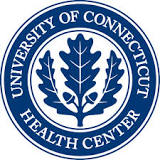Study of GMI-1070 for the Treatment of Sickle Cell Pain Crisis
| Status: | Completed |
|---|---|
| Conditions: | Chronic Pain, Anemia |
| Therapuetic Areas: | Hematology, Musculoskeletal |
| Healthy: | No |
| Age Range: | 12 - 60 |
| Updated: | 9/26/2018 |
| Start Date: | May 2010 |
| End Date: | December 2013 |
A Phase 2 Randomized, Double-Blind, Placebo-Controlled Study of the Efficacy, Safety, and Pharmacokinetics of GMI-1070, A Pan-Selectin Inhibitor, In Subjects Hospitalized For Sickle Cell Vaso-Occlusive Crisis
GMI-1070 is a new drug that may reduce the stickiness of cells in the blood. The purpose of
this study is to evaluate whether GMI-1070 can reduce the time it takes for pain to go away
in patients with vaso-occlusive crisis (also known as a sickle cell pain crisis). The study
will also collect information on the safety of GMI-1070, how much of the drug is in the blood
and urine, and if there are any other effects when used in patients who are in the hospital
for a sickle cell pain crisis.
this study is to evaluate whether GMI-1070 can reduce the time it takes for pain to go away
in patients with vaso-occlusive crisis (also known as a sickle cell pain crisis). The study
will also collect information on the safety of GMI-1070, how much of the drug is in the blood
and urine, and if there are any other effects when used in patients who are in the hospital
for a sickle cell pain crisis.
Patients being admitted to the hospital for pain crisis may be eligible for this study. In
addition, patients should be 12-60 years old and have sickle cell types SS or
S-beta-thalassemia. People who take part in the study will be evaluated and then randomly
assigned to receive either GMI-1070 or a placebo by IV, in addition to all other usual
treatments for their pain crisis.
During the hospital stay for pain crisis, GMI-1070 or placebo will be given twice a day, and
patients will be asked about their pain severity (pain score) at the beginning of the study
and every few hours during their hospital stay. Their general health, vital signs, lab tests,
and pain medications will also be checked on a regular basis through the hospital stay. When
a patient is feeling well enough to go home, the study drug (GMI-1070 or placebo) will be
stopped, and the patient may go home. Participants will be asked to come back to clinic for a
check-up a few days after leaving the hospital, and one month after leaving the hospital.
addition, patients should be 12-60 years old and have sickle cell types SS or
S-beta-thalassemia. People who take part in the study will be evaluated and then randomly
assigned to receive either GMI-1070 or a placebo by IV, in addition to all other usual
treatments for their pain crisis.
During the hospital stay for pain crisis, GMI-1070 or placebo will be given twice a day, and
patients will be asked about their pain severity (pain score) at the beginning of the study
and every few hours during their hospital stay. Their general health, vital signs, lab tests,
and pain medications will also be checked on a regular basis through the hospital stay. When
a patient is feeling well enough to go home, the study drug (GMI-1070 or placebo) will be
stopped, and the patient may go home. Participants will be asked to come back to clinic for a
check-up a few days after leaving the hospital, and one month after leaving the hospital.
Inclusion Criteria:
1. 12 to 60 years of age
2. Confirmed diagnosis of sickle cell disease (HbSS or HbS-β0thalassemia)
3. Diagnosis of VOC at the time of enrollment
4. Hospitalized or in process of admission at the time of enrollment
5. Able to receive the first dose of study drug within 24 hours of initial medical
evaluation in the Emergency Department/clinic for VOC;
o Subjects treated as an outpatient within the past 48 hours for the same VOC episode
may be enrolled if dosing is also expected within 24 hours of their second (admitting)
presentation.
6. Documented and observed written informed consent (and assent, where applicable)
Exclusion Criteria:
1. Infection, diagnosed or strongly suspected, as evidenced by one or more of the
following:
- Fever >39°C (102.2°F)
- In the presence of fever ≥38.5°C (101.3°F), 1 of the following:
- Positive findings (suspicious for infection) on diagnostic tests, such as
cerebral spinal fluid [CSF] evaluation, radiographs, or bacterial culture of
normally sterile sites
- Exam findings leading to diagnosed or strongly suspected bone or joint
infection
- Determination by physician that bacterial or serious systemic viral
infection is likely (eg, influenza, mononucleosis)
- Subjects may be included with uncomplicated urinary tract infections
(provided they do not have fever ≥38.5° C [101.3° F] or costo-vertebral
angle [CVA] tenderness), and/or suspected minor viral syndromes (upper
respiratory infection symptoms but no symptoms suggestive of bacterial
infection other than uncomplicated otitis media or uncomplicated
streptococcal pharyngitis)
2. Acute chest syndrome, diagnosed or strongly suspected, as evidenced by a new
infiltrate on chest radiograph, and 1 or more of the following:
- Fever >39° C (102.2° F)
- Hypoxia (confirmed by arterial blood gases [ABG] with paO2 <70 mmHg)
- Chest pain
- Suspicious findings on exam (tachypnea, intercostal retractions, wheezing, and/or
rales)
3. Sickle cell disease (SCD) pain atypical of VOC, including hepatic or splenic
sequestration, cholecystitis, or pneumonia.
4. Acute stroke, acute priapism, severe avascular necrosis of the hip/shoulder when the
presenting pain is only in the affected hip/shoulder
5. Serum creatinine:
- >1.2 mg/dL for subjects 16 to 60 years of age
- >1.0 mg/dL for subjects 12 to 15 years of age
6. Alanine transaminase (ALT/SGPT) >2x upper limit of normal (ULN) (based on clinic
laboratory normal range)
7. Hemoglobin <5 g/dL
8. Platelets <100,000/mm3
9. Recent (within the past 30 days) major surgery, hospitalization for other than VOC,
documented serious bacterial infection requiring antibiotic treatment, or significant
bleeding
10. Hospitalization for uncomplicated VOC, or treated with parenteral pain medications in
other medical settings such as the emergency department or day hospital for
uncomplicated VOC, within past 14 days.
o Subjects may be included if treated as an outpatient within the past 48 hours for
the same VOC episode.
11. Recent (within the past 90 days) cerebrovascular accident, transient ischemic attack,
or seizure
12. pRBC transfusions in the past 14 days
13. Systemic steroid therapy within 48 hours prior to enrollment or expectation that
therapy may be used during the study (inhaled or topical steroids are allowed)
14. For those on chronic or long-acting opioids, a change in dose in the past 14 days OR
pain requiring medical attention in the past 14 days (change in opioid medication for
acute pain in the past 48 hours and directly related to this VOC admission is allowed)
15. Greater than 5 episodes of hospitalization for VOC in the past 6 months (180 days)
16. Medical or psychiatric condition that, in the opinion of the investigator, may pose a
risk to the subject for participation or interfere with the conduct or results of the
study
17. Currently receiving, or has received within the previous 4 weeks, any other
investigational agent
18. Previous administration of GMI-1070
19. Expectation that the subject will not be able to be followed for the duration of the
study
20. Pregnant or lactating female; or female of childbearing potential or male unable or
unwilling to comply with birth control methods or abstinence during the course of the
study
21. Active use of illicit drugs and/or alcohol dependence, as determined by the
investigator
We found this trial at
22
sites
Click here to add this to my saved trials
University of Mississippi Medical Center The University of Mississippi Medical Center, located in Jackson, is...
Click here to add this to my saved trials
1601 Northwest 12th Avenue
Miami, Florida 33136
Miami, Florida 33136
(305) 243-6545

University of Miami Miller School of Medicine The University of Miami Leonard M. Miller School...
Click here to add this to my saved trials
Children's Hospital of Philadelphia Since its start in 1855 as the nation's first hospital devoted...
Click here to add this to my saved trials
Georgia Health Sciences University Georgia Regents University, home of the Medical College of Georgia, is...
Click here to add this to my saved trials
Click here to add this to my saved trials
Click here to add this to my saved trials
Click here to add this to my saved trials
Click here to add this to my saved trials
Click here to add this to my saved trials
New York Methodist Hospital A voluntary, acute-care teaching hospital, New York Methodist Hospital's mission is...
Click here to add this to my saved trials
University of Illinois at Chicago A major research university in the heart of one of...
Click here to add this to my saved trials
Click here to add this to my saved trials
Click here to add this to my saved trials
Click here to add this to my saved trials
Duke Univ Med Ctr As a world-class academic and health care system, Duke Medicine strives...
Click here to add this to my saved trials
263 Farmington Ave
Farmington, Connecticut 06030
Farmington, Connecticut 06030
(860) 679-2000

University of Connecticut Health Center UConn Health is a vibrant, integrated academic medical center that...
Click here to add this to my saved trials
Click here to add this to my saved trials
Virginia Commonwealth University Since our founding as a medical school in 1838, Virginia Commonwealth University...
Click here to add this to my saved trials
2315 Stockton Blvd.
Sacramento, California 95817
Sacramento, California 95817
(916) 734-2011

University of California, Davis Medical Center UC Davis Medical Center serves a 65,000-square-mile area that...
Click here to add this to my saved trials
Click here to add this to my saved trials
111 Michigan Ave NW
Washington, District of Columbia
Washington, District of Columbia
(202) 476-5000

Childrens National Medical Center As the nation’s children’s hospital, the mission of Children’s National Medical...
Click here to add this to my saved trials






